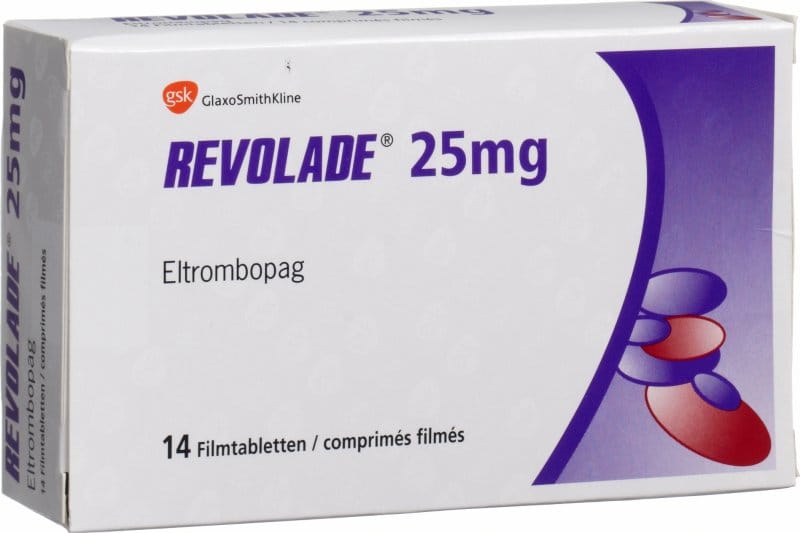PROMACTA is a thrombopoietin receptor agonist indicated:
• for the treatment of thrombocytopenia in adult and pediatric patients
1 year and older with persistent or chronic immune thrombocytopenia
(ITP) who have had an insufficient response to corticosteroids,
immunoglobulins, or splenectomy. PROMACTA should be used only in
patients with ITP whose degree of thrombocytopenia and clinical
condition increase the risk for bleeding.
• for the treatment of thrombocytopenia in patients with chronic
hepatitis C to allow the initiation and maintenance of interferon-based
therapy. PROMACTA should be used only in patients with chronic
hepatitis C whose degree of thrombocytopenia prevents the initiation of
interferon-based therapy or limits the ability to maintain interferon-based therapy.
• in combination with standard immunosuppressive therapy for the first-line treatment of adult and pediatric patients 2 years and older with
severe aplastic anemia.
• for the treatment of patients with severe aplastic anemia who have had an
insufficient response to immunosuppressive therapy.
Limitations of Use:
• PROMACTA is not indicated for the treatment of patients with
myelodysplastic syndrome (MDS).
• Safety and efficacy have not been established in combination with
direct-acting antiviral agents used without interferon for treatment of
chronic hepatitis C infection.
PROMACTA® (eltrombopag) | Tablets | GSK | Sold as REVOLADE
Price range: $1,653.48 through $3,184.17
What is Promacta?
Promacta is a man-made form of a protein that stimulates cells in the bone marrow to produce more platelets (blood-clotting cells). Eltrombopag belongs to a class of medications called thrombopoietin receptor agonists.
Promacta is used to increase the number of platelets (cells that help the blood clot) to decrease the risk of bleeding in adults and children one year of age and older who have chronic immune thrombocytopenia (ITP; an ongoing condition that may cause unusual bruising or bleeding due to an abnormally low number of platelets in the blood) and who have not been helped or cannot be treated with other treatments, including medications or surgery to remove the spleen.
Promacta is also used to increase the number of platelets in people who have hepatitis C (a viral infection that may damage the liver) so that they can begin and continue treatment with interferon (Peginterferon, Pegintron, others) and ribavirin (Rebetol).
Promacta is also used in combination with other medications to treat aplastic anemia (condition in which the body does not make enough new blood cells) in adults and children 2 years of age and older.
Promacta is also used to treat aplastic anemia in adults who have not been helped with other medications. Promacta is used to increase the number of platelets enough to decrease the risk of bleeding in people with ITP or aplastic anemia, or to allow treatment with interferon and ribavirin in people with hepatitis C. However, it is not used to increase the number of platelets to a normal level.
Promacta should not be used to treat people who have low numbers of platelets due to conditions other than ITP, hepatitis C, or aplastic anemia.
Promacta is not for use in treating myelodysplastic syndrome (also called “preleukemia”).
| Strength |
|---|





